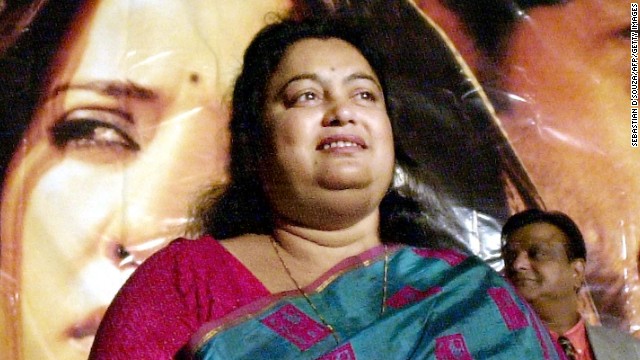India is in touch with the Afghan government over the gunning down of Indian author Sushmita Banerjee, whose killing has shocked West Bengal. Her family today demanded her mortal remains be brought back to Kolkata.
India is in touch with the Afghan government over the gunning down of Indian author Sushmita Banerjee, whose killing has shocked West Bengal. Her family today demanded her mortal remains be brought back to Kolkata.
While New Delhi pursued the matter with Kabul, the fatal shooting of Banerjee, whose best selling book detailed the horrors she endured during Taliban rule in Afghanistan, has left the literati in West Bengal shocked and disturbed.
Banerjee, 49, was dragged out of her home and shot dead by suspected Taliban gunmen in Sharan city of Afghanistan’s Paktika province on Wednesday night.
“We are already in touch and contact,” External Affairs Minister Salman Khurshid told the media persons outside parliament Friday. He called the murder “very, very distressing”.
Khurshid said India and Afghanistan have “one single point of view” on women’s issues and were committed “to fight this kind of inhuman treatment, particularly of women”.
Banerjee defied her family to marry Afghan businessman Jaanbaz Khan, and stayed for years with him in Afghanistan. She later came back to India, and in 1998 wrote the bestselling memoir “Kabuliwalar Bangali Bou” (A Kabuliwala’s Bengali Wife), offering a vivid description of the suffering of women under the Taliban.
She also described her daring escape from the clutches of militants. The book made her a household name in Bengal.
Gopal Banerjee, the author’s younger brother, said in Kolkata they will move a request to the external affairs ministry to recover her body and “have it sent back to us”.
Banerjee’s kin say she was “desperate” to return to Afghanistan, and did not heed their advice to stay on in India. They said she wanted to write another book on the lives of Afghan women.
“We had warned her not to go (to Afghanistan). But she was sort of desperate in nature from the outset. We had told her that the Taliban would not let her live in peace as she had written so much about them… but she did not listen to us. She wanted to go back immediately,” Gopal Banerjee said.
The writer’s family suspect a conspiracy in her killing.
“Why she (Sushmita) alone was killed while the rest of the family was left untouched? Did the killers tie the rest of the family members to actually protect them? Why did her husband not try to contact us after the tragedy?” Banerjee’s sister-in-law Debolina Banerjee told IANS in Kolkata.
News of her death cast a gloom in West Bengal, with Magsaysay Award winner Mahasweta Devi saying: “It is tragic….”
Noted author Shirshendu Mukherjee expressed shock, and marvelled at the courage of Banerjee. “I had read her book, but I didn’t know her personally. She was a courageous woman and she faced many hardships,” he said.
Sahitya Akademi awardee Shankha Ghosh told IANS: “This is shocking. If the Taliban is doing all this, then it goes against civilisation.”
Banerjee was also the subject of the 2003 Bollywood film, “Escape From Taliban”, featuring Manisha Koirala. The film described itself as the “story of a woman who dares the Taliban”.
Celebrated Indian columnist and novelist Shobhaa De equated Banerjee’s death to the attack on Pakistani teenager Malala Yousafzai in October 2012 by the Taliban.
“Another Malala. R.I.P. Sushmita Banerjee. Intellectual martyr,” tweeted De.
Malala was shot by the Taliban for promoting education for girls in Pakistan’s Khyber PukhtoonKhwa province where extremists had issued a diktat banning education for females.
IANS





